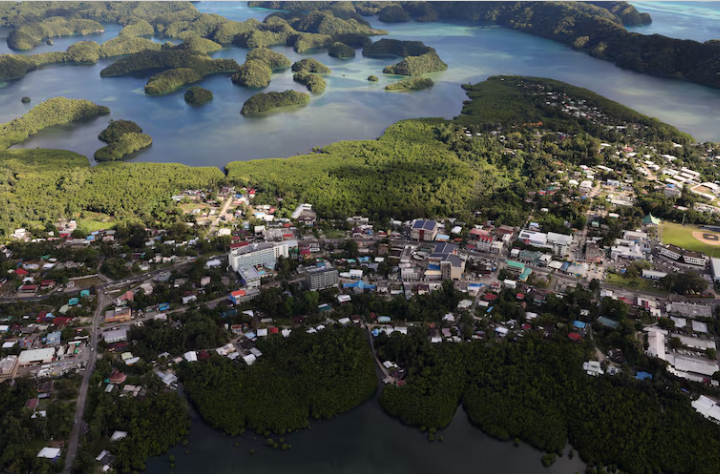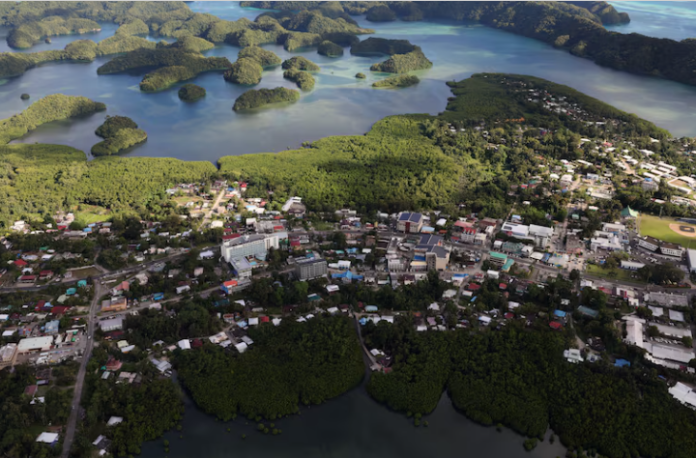Once a blood-soaked battleground during World War II, the Pacific island nation of Palau has once again become a geopolitical flashpoint—this time in a modern power struggle between the United States and China.
Nestled in the Western Pacific, Palau’s tranquil beaches and lush greenery mask its increasing strategic significance. With just 17,000 residents, this small democracy hosts U.S. military facilities and soon, high-tech radar stations designed to monitor vast stretches of ocean and sky. These installations form part of the U.S. “Second Island Chain” strategy aimed at countering China’s growing military presence in the region.
But America isn’t the only superpower making moves. China has launched a complex and aggressive influence campaign to gain a foothold in Palau, involving shady business deals, political donations, land leases near U.S. military zones, and connections to criminal activity. According to multiple U.S. intelligence reports reviewed by Reuters, Chinese nationals and syndicates are allegedly using organized crime to infiltrate the island, destabilize its institutions, and buy influence.
Illegal gambling, prostitution rings, drug smuggling, and even a gruesome suitcase murder have been linked to Chinese individuals operating in Palau. These developments, according to U.S. Ambassador Joel Ehrendreich, are not random. “This is China’s playbook—use predatory investment and elite capture to destabilize small nations one by one,” he warned.
Palau’s laws forbid foreign political donations, but local anti-corruption officials say enforcement is difficult without hard evidence. “Everyone knows money changes hands, but proving it is another matter,” said Tamara Hutzler, Palau’s top anti-corruption prosecutor.
Adding to the tension is Palau’s continued diplomatic recognition of Taiwan—a decision China strongly opposes. Despite pressure, Palau has not severed ties with Taipei, making it one of the few nations to defy Beijing’s “One China” policy.
Senator Hokkons Baules, President of the Palauan Senate and a vocal supporter of stronger ties with China, has come under scrutiny. Allegations include his ties to a Chinese businessman who entered Palau with $119,000 in cash and rented space in Baules’ family-owned building, later linked to Chinese-run brothels and drug trafficking. Baules has denied all wrongdoing and insists he is the target of a smear campaign.

Meanwhile, Chinese land leases around American military zones are raising alarms. Though foreigners can’t buy land outright, they’ve leased hundreds of thousands of square meters across Palau. Critics argue this could allow China to obstruct U.S. military expansion or gather intelligence.
Despite Chinese officials calling the allegations “fabricated nonsense,” U.S. authorities remain wary. They believe Palau is just the latest in a series of Pacific islands being quietly targeted in China’s regional dominance strategy.
With both superpowers planting deeper roots in this tiny paradise, the battle for influence in Palau may shape the future of Pacific geopolitics more than the world realizes.



